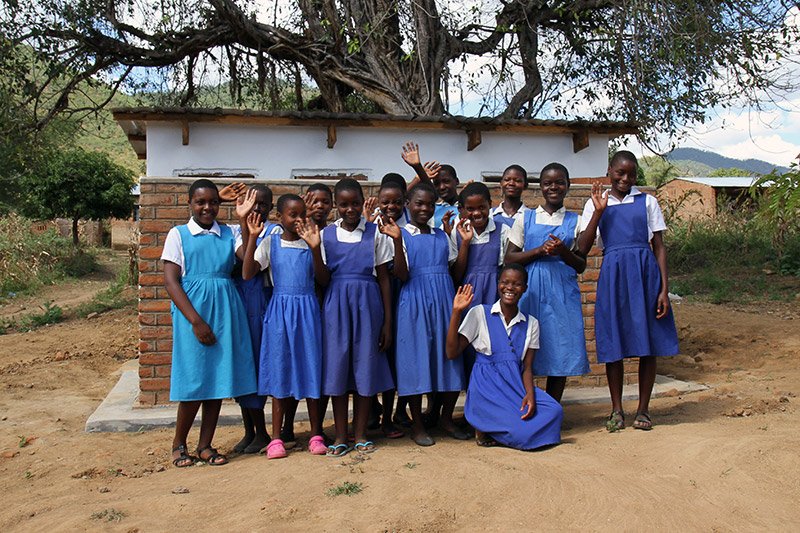Girls Education Project
Location: Mzimba District, Northern Region
Partner: Small Producers Development and Transporter’s Association
Every child needs an education to thrive; it is an essential component of healthy personal development. A lack of schooling has many negative impacts, and contributes to the persistence of extreme poverty.
In Malawi about 2 thirds (62%) of young people between the ages of 15-24 have not completed primary education in Malawi.
Girls face particular challenges when it comes to accessing education for many reasons, such as discrimination and inadequate facilities for their specific needs. It is very common for girls to skip school during their periods because of a lack of sanitation facilities. Girl’s can miss up to 20% of their schooling, which radically decreases their chances of graduating to secondary, and persists levels of child marriage.
Ensuring that children complete their primary level education at the very least is part of our strategy to improve child welfare in the communities in which we work.
We are working with 3 primary schools in northern Malawi to:
Improve school buildings, so that they are safe and watertight, enabling classes to continue throughout the rainy season.
Provide desks and learning materials.
Provide adequate toilets and changing facilities, particularly for girls.
Providing accommodation, to attract teachers to these remote locations.
Enabling school mother groups to manufacture and distribute reusable sanitary pads, as well as provide support and counselling for girls.
Train parents on the importance of prioritising their children’s education, for girls as well as boys.
Community participation is very important in ensuring the success of this project. Community members are highly involved in managing the project, providing knowledge and labour and other resources such as building materials.
We expect that in total this project will increase the quantity and quality of primary and pre-school education that 1,200 children receive.


